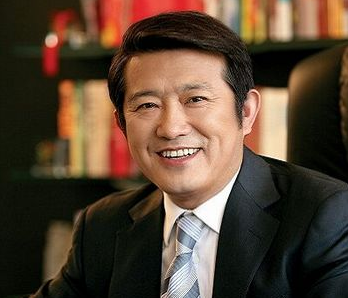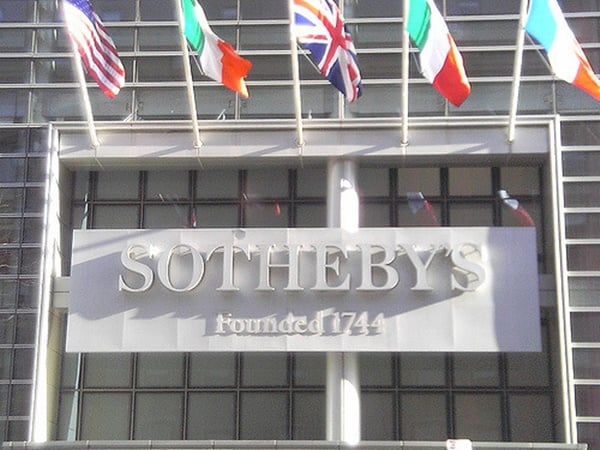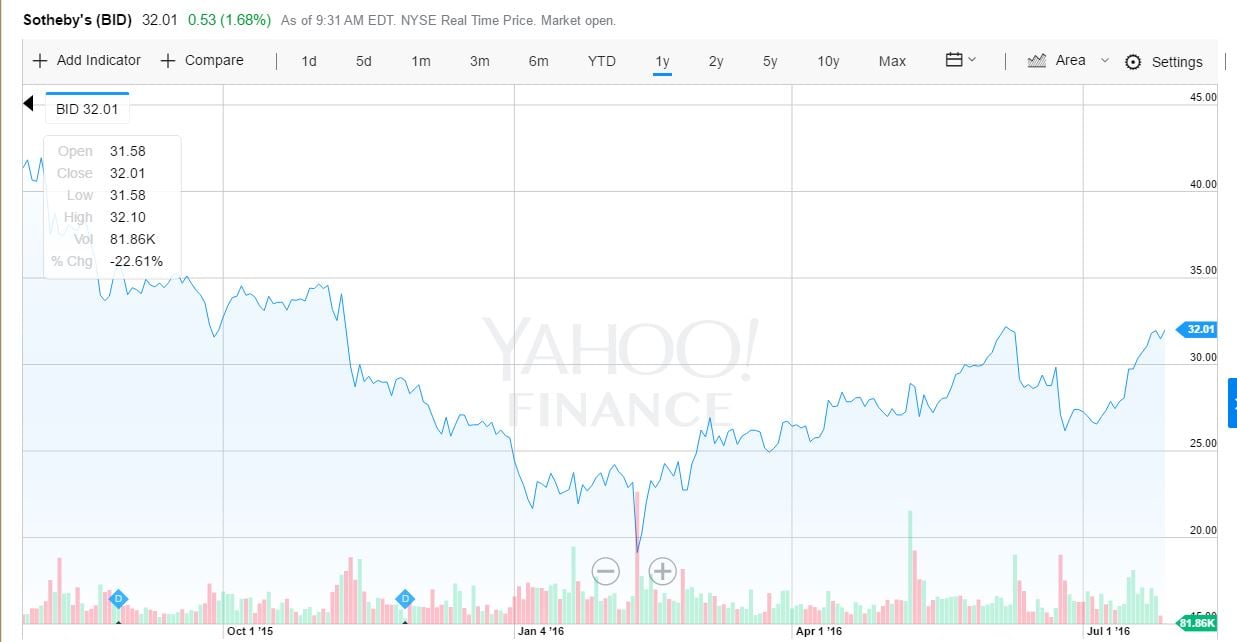Analysis
Chinese Investor Takes Largest Stake in Sotheby’s
Chen Dongsheng has deep connections in the Chinese art market.

Chen Dongsheng has deep connections in the Chinese art market.

Eileen Kinsella

Chinese insurer Taikang has amassed a 13.5 percent stake in Sotheby’s—the largest of any shareholder—and may be looking for a seat on the board of the auction house.
Taikang’s CEO and chairman is Chen Dongsheng, the grandson-in-law of former Chinese leader Mao Zedong. He is also founder and president of China Guardian, the country’s second-largest auction house (after Poly International), as well as deputy chairman of China Auction Association (CAA). According to ChinaVitae.com, he was born in China in 1957 and has been head of Taikang since 1996, after founding China Guardian in 1993. Chen, who is married to Mao’s granddaughter, was also recently named in the Panama Papers leak.
Related: China Auction House King Named in Panama Papers

Image via Flickr
The stake was disclosed in a filing made with the Securities and Exchange Commission—a requirement when stock ownership of a publicly traded company exceeds five percent. Taikang’s stake now exceeds that of Third Point’s Dan Loeb, who owns 11.4 percent of Sotheby’s. In 2014, Loeb fought a drawn out, often bruising proxy battle to win three seats on the company board, including one for himself, and force out longtime CEO Bill Ruprecht. Other large shareholders include mega-collector and financier Steven A. Cohen, whose Point72 Asset Management owns 5.5 percent.
Taikang Life, which has assets of Rmb33bn ($6 billion) according to the FT, revealed it had paid $230 million for 8 million shares. The shares were purchased on the open market during June and July.
Related: Exodus at Sotheby’s Plunges Auctioneer Into Murky Waters
Asked for comment on the investment, Sotheby’s CEO Tad Smith said in an email to artnet News: “Members of management and the Board of Sotheby’s have met with Taikang executives and warmly welcome their support of Sotheby’s strategic initiatives. Sotheby’s management and Board continue to implement those initiatives with the expectation that all shareholders, clients, and staff will benefit.”
This past May, Shanda, a private, Singapore-based investment group, increased its ownership stake in Sotheby’s after the US Federal Trade Commission granted antitrust approval. Shanda, which was valued at $31 million as of March 31, originated as an online gaming company and is run by co-founders Tianqiao Chen and Chrissy Qian Qian Luo, who currently own two percent of Sotheby’s shares. According to a Forbes post, Tianqiao Chen has a net worth of $1 billion and ranked #243 on China’s rich list.
David Schick, an analyst with Consumer Edge Research in Washington DC, who covers Sotheby’s, said in a research note this morning: “We think having a mainland China based owner is a potential positive for [Sotheby’s] business (it certainly doesn’t hurt). Western auction houses have been generally limited in mainland activity but use local partners to establish a foothold. Our math suggests mainland China could add roughly $1 to [earnings-per-share] in longer-term models in a more stable art market.”

Sotheby’s stock price. Courtesy of Yahoo Finance.
Sotheby’s stock—which trades on the New York Stock Exchange under the symbol BID—has been trending higher since the start of the month, rising from about $26 a share and trading at $32 a share this morning.